Professional Ethics in Midwifery Practice is an applied ethics book designed for both students and practicing midwives to build ethical thinking in the context of daily practice. This unique text uses an accessible writing style and includes chapters on diversity and justice, informed consent, multiple relationships, confidentiality and privacy, scope of practice, and others. Realistic case examples throughout the text encourage critical thinking in applied ethics. The authors present a unique model for midwives’ ethical thinking and appendices include widely used codes of ethics in the field.
Professional Ethics in Midwifery Practice First Edition
KShs 14,140.00
Professional Ethics in Midwifery Practice is an applied ethics book designed for both students and practicing midwives to build ethical thinking in the context of daily practice. This unique text uses an accessible writing style and includes chapters on diversity and justice, informed consent, multiple relationships, confidentiality and privacy, scope of practice, and others. Realistic case examples throughout the text encourage critical thinking in applied ethics. The authors present a unique model for midwives’ ethical thinking and appendices include widely used codes of ethics in the field.
1 in stock
Related products
-
Management Principles for Health Professionals
KShs 7,420.00Management Principles for Health Professionals is a practical guide for new or future practicing healthcare managers. The customary activities of the manager―planning, organizing, decision making, staffing, motivating, and budgeting―are succinctly defined, explained, and presented with detailed examples drawn from a variety of health care settings. Students will learn proven management concepts, techniques, models, and tools for managing individuals or teams with skill and ease. The Eighth Edition continues to present foundational principles of management in the context of contemporary health care. With timely coverage of such topics as medical cost sharing; use of robots; ER by appointment; increased use of observation units; renewed use of flextime staffing and scheduling; use of social media on the job, and more, this thoroughly updated text addresses the latest trends and issues that today’s health care manager is likely to encounter. Key Features – Presents 2 new tools ―The Manager’s Wheel Book and the Management Reference Portfolio ― to help new managers better understand their role and responsibilities and to aid existing managers in understanding their organization in detail – Covers managing care in a wide variety of health care settings (urgent care centers, specialty clinics, home care, etc.) outside of the traditional hospital setting. – Addresses technology and its impact, including eVisits/telemedicine, implementation of electronic health records, connectivity and the expectation that workers will respond during off hours via email and instant messaging, etc. – Offers expanded coverage on the importance and impact of corporate culture, the values of transparency and accountability, leadership style, and competitiveness. – Includes detailed examples of reports, plans, directives, union contracts, and more.
-
Oxford Handbook of Clinical Specialties (Oxford Medical Handbooks
KShs 6,580.00Now in its 25th year, the Oxford Handbook of Clinical Specialties has been revised and updated by a trusted author team to bring you practical, up-to-date clinical advice and a unique outlook on the practice of medicine. Twelve books in one, this is the ultimate guide to the core clinical
specialties for students, junior doctors, and specialists.This edition features a new and improved referencing system guided by a team of junior doctors, ensuring that the text is packed with valuable references to the most salient data and guidelines across the specialties. Each chapter has been updated on the advice of a team of specialists, to bring you
everything you need for any eventuality on the ward or in the field. This essential handbook guides the reader through the management of an unprecedented spectrum of conditions and eventualties, from sexual health to major incident management. Compact and filled with high quality artwork, directions
to further reading, and wise advice, this book is an ideal resource for revision and reference on the go.With its companion volume, the Oxford Handbook of Clinical Medicine, the Oxford Handbook of Clinical Specialties offers a unique perspective on the practice of medicine. Filled with wit, wisdom, and humanity, this book draws on literature, history, and personal experience to teach a philosophy of
medicine that always puts the patient at the centre of compassionate care. It is a trustworthy companion for anyone with the spirit of self-improvement and a passion for their practice. -
Davidson’s Principles and Practice of Medicine, 24th Edition(paperback)
KShs 10,640.00Well over two million medical students, doctors and other health professionals around the globe have owned a copy of Davidson’s Principles and Practice of Medicine since it was first published over 70 years ago. Now in its 24th Edition, this thoroughly updated textbook describes the pathophysiology and clinical features of the most frequently encountered conditions in the major specialties of adult medicine, and explains how to recognise, investigate, diagnose and manage them. Taking its origins from Sir Stanley Davidson’s much-admired lecture notes, Davidson’s has endured because it keeps pace with how modern medicine is taught and provides a wealth of trusted information in an easy-to-read, concise and beautifully illustrated format.
Key features:
-
- Part 1 ‘Fundamentals of Medicine’ – provides an account of the principles of genetics, immunology, infectious diseases, population health, oncology and pain management, along with a discussion of the core principles behind clinical decision-making and good prescribing.
-
- Part 2 ‘Emergency and Critical Care Medicine’ – covers medical emergencies in poisoning, envenomation and medicine in austere environments, as well as common presentations in acute medicine and the recognition and management of the critically ill.
-
- Part 3 ‘Clinical Medicine’– covers the major medical specialties, each thoroughly revised and brought fully up to date. A new section on COVID-19 has been added and the impact of this infection is described throughout the book.
-
- Clinical Examination overviews – extended and updated to summarise the main elements for each system.
-
- Presenting Problems sections – provide a clear pathway for the assessment of and approach to the most common complaints in each specialty.
-
- Practice Point summaries – detail the practical skills that medical students and junior doctors must acquire.
-
- Emergency boxes – emphasise the core knowledge needed to manage acutely ill patients.
-
- In Old Age, In Pregnancy and In Adolescence boxes – highlight differences in the practice of medicine in these patient groups, and illustrate the interfaces between medical, obstetric and paediatric services.
-
- The text is extensively illustrated – with over 1000 diagrams, clinical photographs, and radiology and pathology images.
- The global perspective is enhanced by an International Advisory Board of experts from 11 countries and by leading authors from around the world.
-
-
Medical Microbiology, International Edition, 19th Edition
KShs 7,462.00Medical microbiology concerns the nature, distribution and activities of microbes and their impact on health and wellbeing. In spite of the introduction of many antimicrobial agents and immunisations, we continue to face major challenges in combatting infection, not least the gathering crisis in antimicrobial resistance.
Now in a fully revised and updated 19th edition, Medical Microbiology provides comprehensive coverage of infection from the microbial perspective, combining a clear introduction to key principles with a focus explicitly geared to modern clinical practice. It provides ideal coverage for medical and biomedical students – with ‘Key Points’ boxes throughout to highlight the essentials – and sufficient detail to also inform specialists in training.
Building on the success of previous editions, updates in Medical Microbiology 19e include:
-
- New and expanded coverage of hot topics and emerging areas important to clinical practice, including:
-
-
- Genomics
-
-
-
- The Human Microbiome
-
-
-
- Direct acting antiviral agents for the treatment of HCV infection
-
-
-
- Molecular methods in diagnostic microbiology
-
-
-
- Antibiotic Stewardship
-
-
- BONUS electronic materials to enhance your learning, including:
-
-
- Clinical cases – to introduce how patients with infections present and help relate key principles to practice
-
-
- MCQs for each chapter – to check understanding and aid exam preparation
-
-
The Handbook of Medical Image Perception and Technique
KShs 11,200.00This state-of-the-art book reviews key issues and methods in medical image perception research through associated techniques, illustrations and examples. Written by key figures in the field, the book covers a range of topics including the history of medical image perception research, the basics of vision and cognition, and dedicated application areas, especially those concerned with the interface between the clinician and the display of medical image data. It summarizes many of the basic techniques used to conduct and analyze medical image perception and observer performance research, allowing readers to understand basic research techniques so they can adopt them for use in their own studies. Written for both newcomers to the field and experienced researchers, this book provides a broad overview of medical image perception, and will serve as a reference volume for years to come.
-
Hutchison’s Clinical Methods International Edition, 25th Edition
KShs 6,370.00Hutchison’s Clinical Methods, 25th International Edition, offers comprehensive guidance on patient assessment, clinical examination, and diagnostic skills, essential for medical students and practitioners worldwide.
Sir Robert Hutchison first published his textbook on Clinical Methods in 1897 and this latest edition maintains its reputation as the go-to guide to learn the core skills every clinician needs in their everyday practice.
Medical students and doctors in training will find essential guidance to taking a full history, examining a patient and interpreting the findings. They will learn the art of understanding, contextualising, communicating and explaining, with the doctor-patient relationship firmly at the centre of their practice. These skills remain essential for every doctor, in addition to modern investigative methods.
The book covers basic principles, different patient groups and all the main body systems. Each chapter includes relevant clinical methods and offers guidance for appropriate investigations. New methods and investigations are incorporated into established patterns of clinical practice to offer a fully integrated approach.
This award-winning textbook remains as relevant today as ever and will be treasured by doctors at all levels of training and practice as an outstanding source of learning and reference.
Key Features-
- All chapters carefully reviewed and updated to reflect modern practice
-
- Written by experts in their field and reviewed by an International Advisory Board – content is relevant to a wide international readership including in the Indian sub-continent, the Middle East and Africa
-
- Covers all the main body systems, including the core areas of respiratory, cardiological, gastrointestinal, neurological and locomotor systems
-
- Text organised by system and problem to aid navigation
-
- Chapters can be read individually, to avoid duplication and need for cross-referencing
-
- Tabulated information and diagrams for clarity and conciseness
-
- Tailored to student needs but suitable for doctors at all levels of training and practice
-
- Winner of multiple awards, including the BMA book awards
-
- New appendix describing the clinical features of COVID-19
Author InformationEdited by Michael Glynn, MA, MD, FRCP, FHEA, Consultant Physician, Gastroenterologist and Hepatologist, Barts Health NHS Trust; Honorary Senior Lecturer, Barts and the London School of Medicine and Dentistry; Former National Clinical Director for GI and Liver Diseases, NHS England and William M Drake, DM FRCP, Consultant Physician/Reader in Medicine, Department of Endocrinology, St Bartholomew’s Hospital, London, UK -
-
Netter’s Clinical Skills, 1st Edition
KShs 3,080.00Make the most of every patient encounter – from the clinical interview and history to the physical exam, both in-office and bedside. This discreet quick reference by Ilene L. Rosenberg, MD, FCCP, Todd Cassese, MD, FACP, and Dennis Barbon, RN, helps you achieve consistent and comprehensive results when collecting data and determining your next steps. Carry this thin, fully illustrated checklist in your white coat pocket for the fastest, most efficient way to access essential information you need to know and remember every day.

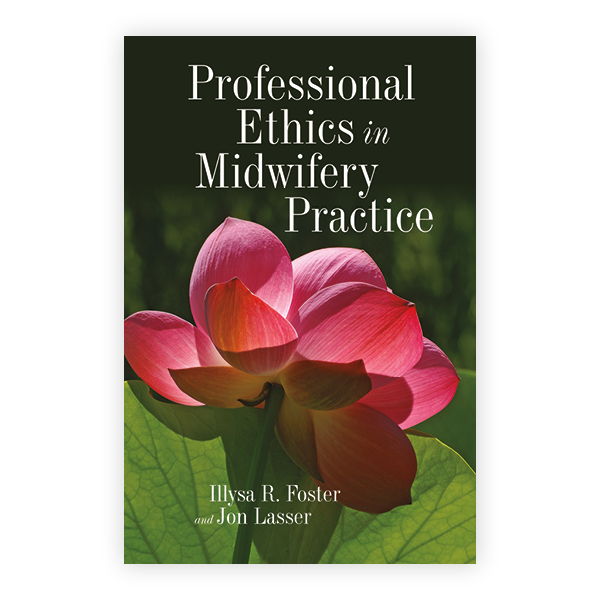
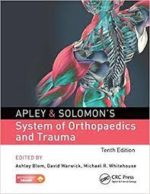



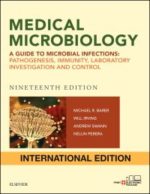
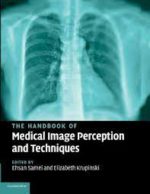
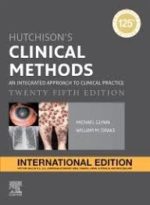
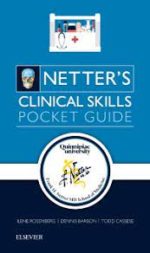
Be the first to review “Professional Ethics in Midwifery Practice First Edition”